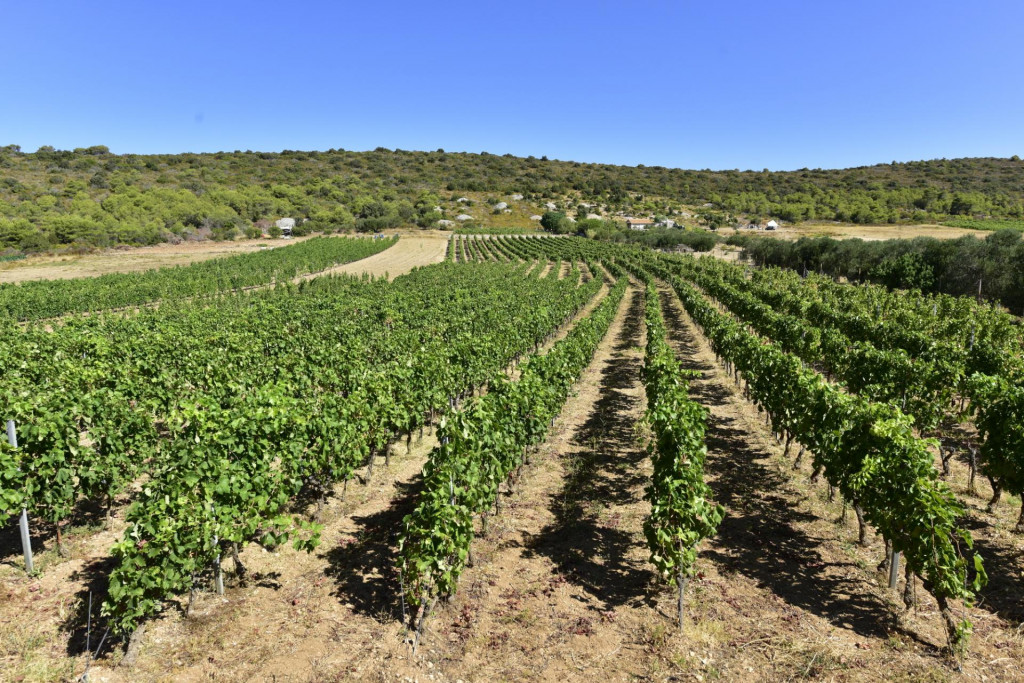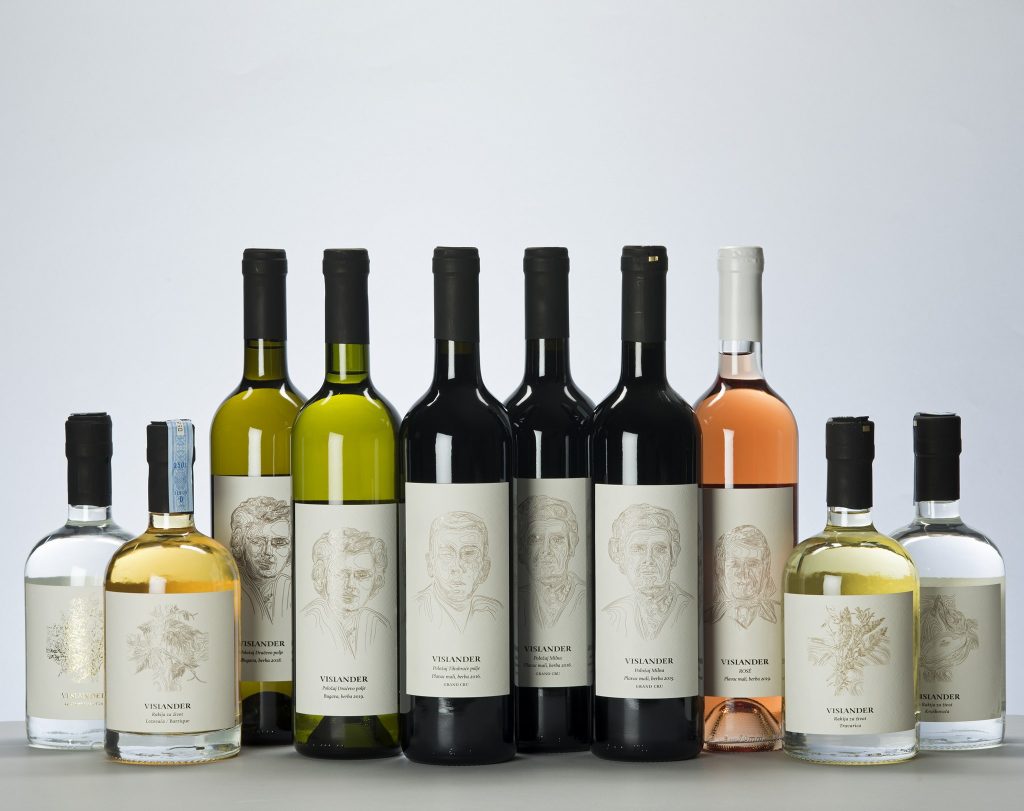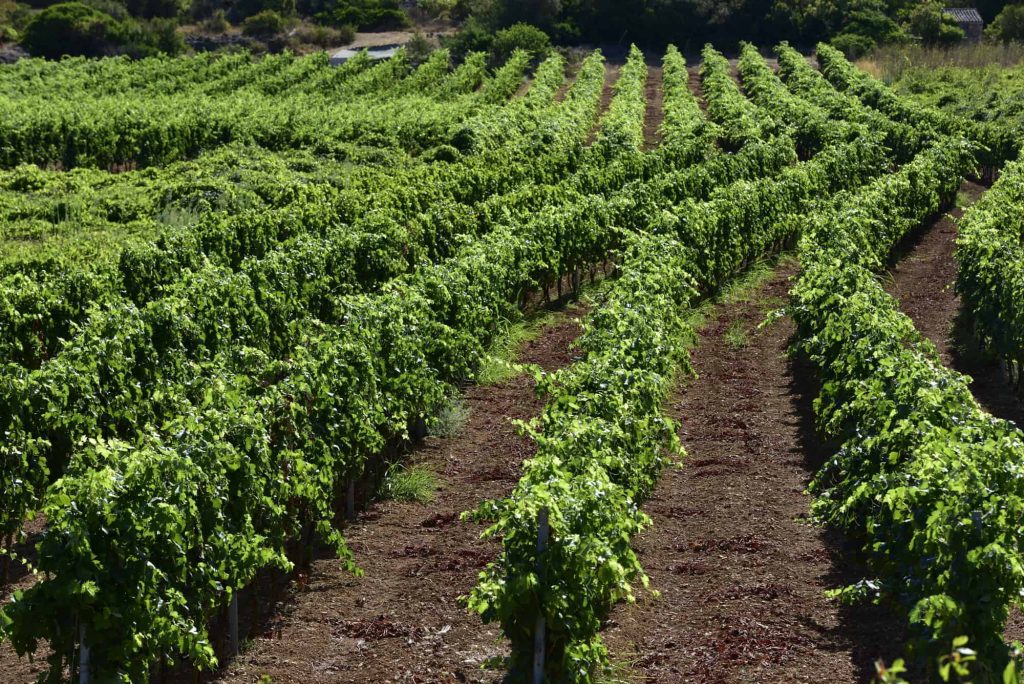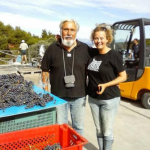August 18, 2023 – As Wine & more writes, when it comes to island wines, most minds immediately drift toward the picturesque landscapes of Italy or the historically rich vineyards of Greece.
It’s a natural association, given the long-standing reputation of these countries as viticultural pioneers. Unquestionably, some of the most illustrious island wine regions are nestled within the embrace of Italy and Greece.
From Sardinia and Sicily to Crete and Santorini, these islands house a treasure trove of native grape varieties and centuries-old wine culture.
Yet, island winemaking in Europe extends far beyond these two renowned nations. From the sun-drenched shores of Portugal’s Azores to the dramatic coastlines of Corsica in France and the enchanting vineyards of Madeira, as well as the lesser-known gems like Pantelleria in Italy’s southernmost reaches or Lanzarote in Spain’s Canary Islands, each island contributes a distinct set of attributes that imprint themselves onto the wines produced in these unique locales.
A Storied Past: Island Winemaking in Croatia
Croatian islands harbor a winemaking legacy that predates even the Roman Empire. The nation’s geography, with its scattering of islands along the Adriatic coastline, has facilitated an ideal environment for viticulture.
Each island has preserved its own winemaking traditions, indigenous grape cultivars, and diverse terroirs. As such, these islands have become a compelling haven for those who revel in the world of wine.
Croatia’s Islands in the Wine Spotlight
The Croatian islands stand as an underappreciated gem in the world of wine. Several factors contribute to their relative obscurity on the global stage:
- Limited Production and Export: Many Croatian island wineries focus on domestic consumption rather than international export due to limited production capacities.
- Limited Marketing and Promotion: Small family-owned wineries may lack the marketing budgets and distribution networks needed for global recognition.
- Regional Focus: Croatia’s wine culture traditionally emphasizes local consumption over international recognition.
- Infrastructure Challenges: Some wineries may need more resources to compete in international competitions and gain critical reviews. Despite these hurdles, Croatian island wines are gradually gaining recognition, thanks to their indigenous varieties, diverse terroirs, and rich winemaking history.

Croatian Islands for wine lovers
Croatia’s islands offer an enchanting blend of ancient winemaking traditions, native grape varieties, and unique terroirs. Some of the most notable Croatian island wines are found on:
- Hvar Island: With a history spanning over two millennia, Hvar is known for preserving ancient winemaking techniques and cultivating indigenous grapes like Plavac Mali and Bogdanuša.
- Korčula Island: Korčula boasts the Pošip grape, which produces white wines with bright acidity and citrusy notes.
- Vis Island: Vis is emerging as a notable wine destination, with its Vugava white wines and Plavac Mali reds.
- Brač Island: Brač’s Pošip and Plavac Mali wines showcase rich flavors and unique island characteristics.
These islands proudly showcase their winemaking traditions using organic methods that produce exquisite wines and provide visitors with a glimpse into the local winemaking communities.
Vis Island WINES
Discovering wines from the Croatian island of Vis is a delightful experience worth revisiting.
Vis, an enchanting island located in the Adriatic Sea, possesses a rich winemaking heritage that stretches back for centuries.
Due to its isolation from the mainland, Vis has been able to maintain its traditional winemaking practices. The island cultivates local grape varieties and creates wines that showcase its distinct microclimate and terroir.
Vis Island is known for its exceptional grape varieties, and one of the most notable is Vugava. This indigenous white grape produces wines with distinct aromas, refreshing flavors, and impressive structure. If you’re looking for a delightful white wine experience, Vugava is an excellent choice.
Vis is famous for its red wines made from the Plavac Mali grape, which is related to the popular Zinfandel variety.
These wines are characterized by their strong taste of dark berries, Mediterranean spices, and a bit of minerality, which reflects the island’s rocky and sunny terrain.
Furthermore, Plavac from Vis is known for its ability to achieve balanced wines despite having the highest alcohol levels.
Exploring the charming wineries on this scenic island provides a chance to experience the local winemaking tradition and enjoy the delicious results of their hard work.
With its stunning coastal vineyards, welcoming hospitality, and a sip of history in every glass, wines from Vis are an invitation to embark on an unforgettable vinicultural journey.

Vis Island wineries
Prominent wineries on Vis Island, like
- Vislander Winery,
- Lipanović Winery,
- Roki’s Winery,
- Senjanović Winery, and
- Bunčić Winery, play a crucial role in preserving the island’s winemaking heritage.
These wineries truly embody the bond between the land, the vines, and the local winemaking customs.
Their expertly crafted wines perfectly showcase the unique terroir of the island, ensuring that every bottle captures the essence and spirit of the island.
Vislander Winery: Embodying Terroir
Vislander Winery stands as an epitome of Vis Island’s unique terroir. With a focus on single-vineyard Plavac Mali wines, Vislander interprets the island’s terroir through every sip.
Their commitment to traditional cultivation practices, organic methods, and diverse wine offerings, including sparkling and aged reds, showcases their dedication to preserving the island’s winemaking heritage.
Vislander Winery pays homage to the forefathers and mothers who shaped the island’s wine culture through their topographic map-inspired labels.
To truly understand the different kinds of Vis island wines and their culture, it’s crucial to be dedicated to the terroir. The vineyards are tended to in a traditional manner without relying on mineral fertilizers or synthetic pesticides, in order to preserve the health of the soil, vines, and animals.
Vislander is also the only Vis Island winery making the lineup of wines from sparkling to aged red, including refreshing still whites, aged whites, and rose.
This is thanks to the numerous vineyards on the island that Vislander manages, and that are home to Vugava (Bugava), Kuč, and Plavac Mali grapes.

Vis Island’s wine labels are a tribute to its cultural heritage. They are named after the ancestors who upheld traditions and passed them down through generations. These labels use distinctive symbols and topographic map markings to create their unique identity.
If you have the opportunity, we highly recommend visiting the winery. You’ll get to taste the indigenous varieties Plavac Mali and Vugava, which are exclusive to the island. This experience will leave a lasting memory.
You can order Vislander wines online at wineandmore.com and have them delivered to your doorstep.
In that sense, you are one step away from the place where time itself runs differently – Vis Island.
NOTE: The article was originally written at wineandmore.com











